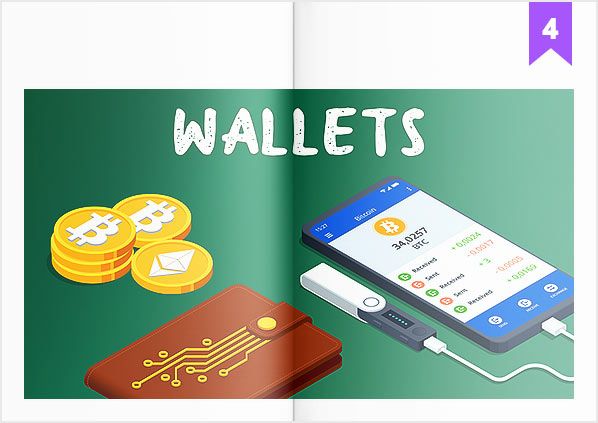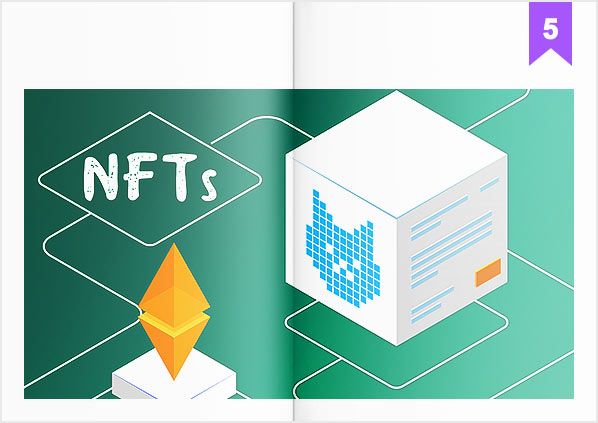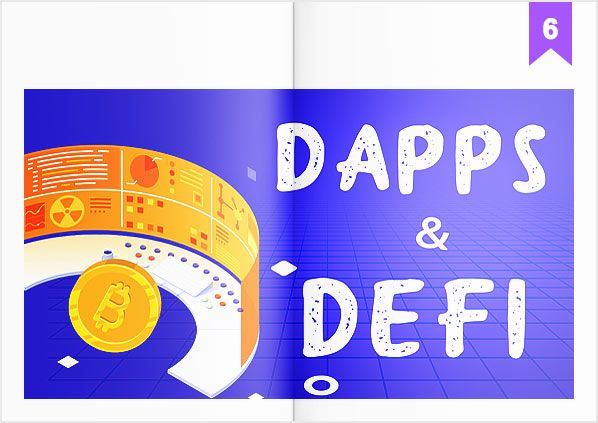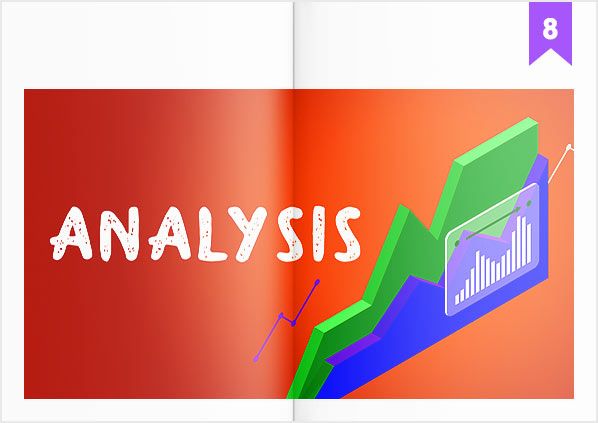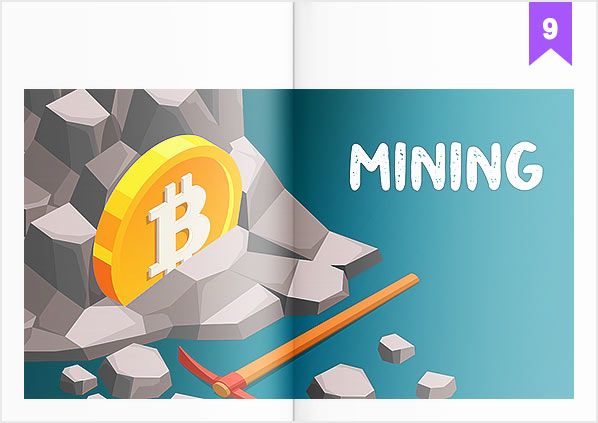The Peculiarities of Decentralized Crypto Gambling
In this section, we’re going to talk about decentralized crypto gambling, and how it’s different from traditional gambling!
Gambling is a bit of an interesting topic - that’s for sure. However, to this day, it’s one of the more popular forms of entertainment - this is something that can’t be denied, either. With how popular gambling is, though, it’s only natural that there are new and emerging technologies coming out in this field, continuously.
This is where crypto gambling comes into play, as well. While the concept is probably as old as crypto itself, if you’re not an active participant in this space, you might be surprised to find out just how many different aspects of crypto tech the field of gambling has managed to employ!
In this section, we’re going to discuss crypto gambling. To be more specific, I will tell you what this form of gambling is, to begin with, and how it’s different from your common, everyday gambling processes. Then, we’ll also talk about the key aspect that makes crypto gambling appealing, when compared to traditional gambling platforms.
So, let’s get to it!

Video Explainer
Video Explainer: The Peculiarities of Decentralized Crypto Gambling
Reading is not your thing? Watch the "The Peculiarities of Decentralized Crypto Gambling" video explainer
What is Decentralized Crypto Gambling? (Animated Explainer)


What is Crypto Gambling?
To start out, let me just say - crypto gambling isn’t a very simple topic, and it requires some fundamental knowledge about crypto, in general, and how certain blockchain-related processes work. If you’re unfamiliar with all of that, or feel like you need to brush up your “Crypto 101” skills, make sure to check out other chapters in this Handbook - I have sections dedicated to all of the core aspects of this technology!
Assuming that you’re already crypto-savvy, though, let’s start off by outlining some definitions of just what crypto gambling is. This is where an example would probably suffice.
So, imagine that, while shopping for groceries in your local mall, you’ve come across a magician booth. The so-called magician has 5 different cups lying on the table, faced down, and a marble. He proposes a deal to you - you pay him some money, and guess the cup under which the marble is placed. If you’re correct, you’ll get your money back, as well as an additional reward on top of it.
Now, the magician also tells you that he has a “special system” of how he places the marble under the cups, and that “the odds are definitely fair”. So, would you participate in a game like this?
I can hear you asking already - what does this have to do with crypto gambling?! Well, bear with me - while it’s no Ethereum casino just yet, all of this will make sense in a minute.
Moving on, I’d like to give you an altered version of the earlier example. So, imagine that the situation is completely the same, but instead of a magician, there’s a special machine handling the marble & the cups, as well as paying out rewards. Furthermore, you can take your time and read about the “special process” of how the cups are selected, and how the marble is placed.
Finally, if you’re still not convinced, you can step aside and view how the machine works when other people play, and how the rewards are paid out. So, to sum up, and in other words - the entire process is provably fair.

Now, this latter example works well to represent crypto gambling, at least to a satisfactory extent! With traditional gambling processes, you never really know what algorithms are used in the game that you’re playing (unless you’re betting on a live sports event, that is). Furthermore, there are countless different horror stories where players would win big, and then suddenly, the underlying platform would come up with excuses for why the win doesn’t count. In turn, this would result in the winnings not being paid out, as well.
Crypto gambling offers a sort of solution for those problems - provably fair gambling processes. You see, when you play a game on a decentralized crypto gambling platform, the underlying mechanics are based on a smart contract. These “mechanics” (or, rules of the game, as well as the odds of you winning or losing) are predefined, and once the smart contract is activated (in other words - once you start playing), they are going to be enforced, no matter what. That’s the magic of smart contracts!

On top of that, it’s probably still worth stating the obvious, as well - whether it be decentralized crypto gambling, or gambling with some sort of an established brand (such as Stake crypto gambling), instead of fiat money, you would be using your cryptocurrencies. This makes the whole entire experience more interesting and, potentially, somewhat anonymous, too!
Decentralization - The Key Element of Crypto Gambling
Moving on, I want to tell you the secret - all of those cool features that we’ve just talked about, when it comes to crypto gambling, are made possible thanks to a single aspect - decentralization.
Now, when people talk about gambling and wagering their cryptocurrencies, in most cases, they are referring to just that - decentralized crypto gambling. There are also centralized crypto gambling platforms, too, but these operate very similarly to your traditional gambling establishments.
Most projects that employ the decentralized model, however, have some significant benefits to offer to their clients, when compared to traditional gambling institutions. For the sake of keeping things simple, let me use CoinGames - a popular online decentralized crypto gambling casino - as an example.

So, the very first thing that you’ll notice with CoinGames is that you don’t actually need to transfer any of your funds to the platform, as you gamble. With a traditional, centralized gambling platform, the situation would be very different. This is a major benefit of decentralized gambling - the fact that it’s non-custodial by nature, and that your funds are never handled by the underlying company behind the gambling project.
Who handles the funds, then? Well, simple - the earlier-mentioned smart contracts!
Sticking with the CoinGames example, if you decide that you want to play one of the games available on their platform - of which there are many, to be fair! -, all that you would need to do is pass a very quick registration process, connect your wallet to their website, and have some of the required tokens (in CoinGames’ case, these are called DEGA).
Once you decide to play a game and gamble your tokens, they would be held in a smart contract - this contract would either automatically issue your rewards if you win, or keep your wager, if you lost. Since the contract is tied to the game, it updates your balance automatically.
Pretty cool, huh? Well, an arguably even cooler feature of decentralized gambling is that all of the processes of the smart contracts can be viewed on the blockchain - they are completely public, and open for anyone to check, at any point in time. It’s the same as with the cup-handling aforementioned machine example - if you can check the rules by which it operates, and view how the machine interacts with other players, you are able to deduce whether or not the whole process is fair!
Naturally, since the example-platform in question - CoinGames - features decentralized crypto gambling functionality, these things would work the exact same with this project, as well.
Now, the one big question that tends to come up, whether while talking about Stake crypto gambling, CoinGames, or gambling crypto tokens, in general, has to do with the legality of the matter. Specifically - is crypto gambling legal, to begin with?

Well, to tell you the truth – that’s a complicated question to answer! In many cases, Ethereum casinos and other gambling platforms will be legal in those countries and states where gambling is legal, in general. However, obviously, before you go out and start gambling, make sure to look into your local laws and regulations surrounding the matter!
Oftentimes, it does also depend on the regulatory steps that the gambling platform has taken, itself - or, in other words, whether it’s regulated or not. Sticking with the CoinGames example, this particular platform is licensed with the Isle of Man Gambling Supervision Commission - thus, depending on specific circumstances, the company behind CoinGames could ask their clients to provide proof of identity, as well as any additional KYC-related information.

Not familiar with the concept of KYC? There is a separate section about this topic - make sure to check it out!
You could say - hey, doesn’t the whole proof of identity thing kind of negate the decentralization aspect of the entire ordeal? Well, no, not really - that would be a mixup between “decentralization” and “anonymity”.
As it was established before, decentralized crypto gambling ensures that the processes taking place on the gambling platform are fair and automated - something that is easy to prove or disprove, by taking a look at the underlying public network. It’s true that some gambling platforms also support anonymity, as well. However, in many places around the world, these platforms aren’t legal to be used, mainly due to the potential for malicious activities to take place on them, thanks to the precise aspect in question - anonymity.
Wrapping Up
So, to wrap things up, let’s have a quick refresher on the main points.
Decentralized crypto gambling is very different from traditional gambling, mostly due to the fact that it features smart contract functionality, and is (in many cases, at least) much more transparent. Gambling services such as CoinGames are a good example of this - while there are licenses and regulations involved, you can still gamble your crypto tokens, in a decentralized manner, and without having to transfer to and keep your assets on the underlying platform.
Obviously, you should always stay cautious when dealing with any type of crypto gambling service - that goes without saying. While doing research of your own, always ask yourself - is crypto gambling legal in my country? Is the platform that I’ve chosen to gamble on licensed and regulated? Are there any red flags that I should be aware of, and avoid?
With that being said, you now know all the basics of decentralized crypto gambling. If you want to become a true crypto expert, though, be sure to study other sections in this Crypto 101 Handbook.



